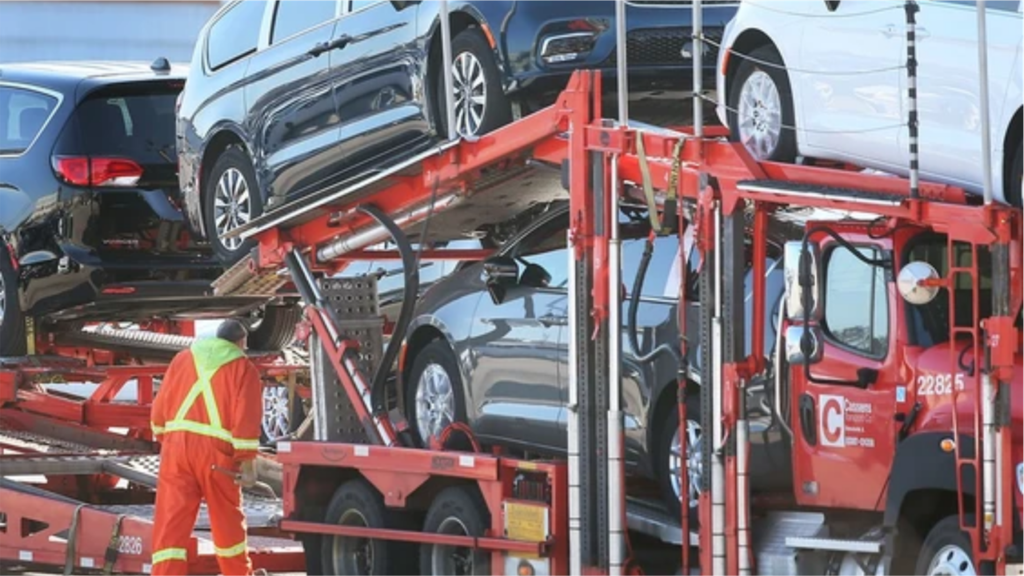Why Britain Can Never Cut Public Spending – The Daily Sceptic
In her much-anticipated Spring Statement, Britain’s greatest ever female Chancellor has announced a £3.25 billion transformation fund to bring down the costs of running government. We’ve seen from the US in the activities of Elon Musk’s Department for Government Efficiency (DOGE) how to cut government spending. Already the US has scrapped USAID saving billions, it looks like all DIE (Diversity, Inclusion and Equality) employees in the US Government are being fired and a few days ago Donald Trump signed an executive order to close down the Department for Education. But what about the British approach to getting value for money for British taxpayers by making our public services more efficient?
I’ll just give one example of why we are unlikely to see any real savings in the British public sector. Apparently we have an Office for Value for Money (OVfM) in Britain. The OVfM was set up in Rachel Reeves’s ‘bankrupting Britain’ October 2024 budget and “provides advice to the Chancellor of the Exchequer and Chief Secretary to the Treasury to ensure that value for money is at the heart of Government’s spending decisions“.
The brilliant Rolls-Royce-brained civil servants at the OVfM have noticed that the Government is spending a fortune of our money on procuring short-term accommodation for homeless Brits and for all the doctors, engineers and scientists pouring across the Channel in small boats each day in spite of Mr Starmer promising to “smash the evil people-smuggling gangs”. So the OVfM has set up a “VfM (Value for Money) Study on procuring short-term residential accommodations”.
Here’s the problem explained in the terms of reference for the groundbreaking Value for Money study:
The unit cost of short-term residential accommodation increased significantly in recent years. The Institute for Public Policy Research (IPPR) reported in 2024 that per asylum seeker costs had increased by 141% from £17,000 in 2019-20 to £41,000 in 2023-24. Private sector suppliers of short-term residential accommodation have made record profits in recent years, leading to accusations of profiteering. There is also evidence that some forms of short-term residential accommodation have a detrimental impact on children and families.
If I were involved in this work, I would start by informing all providers of short-term accommodation that, due to the country’s financial difficulties, the Government expects all providers of short-term accommodation to cut their prices by say 25% and that any who fail to do so would be removed as providers. Of course, there would be howling and screaming and many providers would claim this would bankrupt them and would insist that what the Government was demanding was quite impossible. But as we head into recession, hotel owners are unlikely to find many customers quite as generous and reliable as the UK Government. In addition, pour encourager les autres, I would launch police investigations into a couple of those suppliers suspected of profiteering. Suddenly, on seeing the police investigations, what the providers previously claimed was impossible would become possible and the 25% price reductions would magically materialise.
I was involved in a slightly similar situation many years ago. A major car manufacturer demanded all parts suppliers cut their prices by a few percent and threatened that the car manufacturer would send in a team from our consultancy to ‘help’ any supplier who refused. At first, of course, we got the howls and screams of pain from the parts suppliers that the car manufacturer’s demands were impossible and would bankrupt them, leave them homeless with their children starving and so on and so forth. I actually led the analysis team which was sent into the first parts supplier to claim that it was impossible for him to cut prices. The last thing any parts supplier wanted was us consultants poking around in their businesses and financials. Seeing our team descend on one parts supplier, a miracle seemed to happen as suddenly the other suppliers managed to deliver the price cuts the car manufacturer wanted thus avoiding a visit from us consultants.
But this is not how our OVfM will operate. Instead the OVfM explains:
The Chief Secretary to the Treasury will oversee the study at a ministerial level, supported by the Deputy Prime Minister and the Home Secretary. …
A senior official group, with representatives from relevant departments, will oversee policy development and the recommendations to ministers. This study will be resourced by officials from the Office for Value for Money, the Home Office, the Ministry of Housing, Communities and Local Government, the Ministry of Defence, the Ministry of Justice and HM Treasury, with input from the Cabinet Office and the Government Commercial Function. …
The study will be informed by engagement with local authorities, the Local Government Association, the Centre for Homelessness Impact and other relevant experts.
As for how long the Value for Money study will take, we’re told:
The study will inform decisions at the upcoming Spending Review, and progress to the following timetable:
- June: publication of the study’s outputs in the Spending Review
- February-March: policy development
- April: update to the ministerial oversight group
- May: Spending Review negotiations
- The OVfM will consider the outputs of this study as it develops options for system reform.
I would humbly suggest that this British Value for Money study doesn’t quite show the same urgency and proclivity to action that we see from Elon Musk’s DOGE.
Moreover, I rather suspect that this supposed Value for Money study led by the OVfM will be such a multi-departmental bureaucratic mess that it will achieve the square root of zero. In fact, I further suspect that our 500,000 civil servants are mostly so lazy and useless that they will have to call in eye-wateringly expensive management consultants to show them how to do the study and to hold their hands during the study. Furthermore, I imagine the study will include several ‘offsites’ at expensive hotels with excellent restaurants to encourage the participants to do blue-sky, out-of-the-box thinking, facilitated, of course, by specialised ‘blue-sky-thinking’ management consultants.
Then we must remember, that this first phase till June 2025 is just to develop some ideas on how to cut the cost of short-term accommodation. If these ideas are approved by the relevant Government Ministers, the OVfM will then have to start planning how to implement their genius cost-cutting ideas. That should take at least another few months, again probably assisted by £100,000-plus a week management consultants. And finally the whole thing will drift into 2026, other priorities will take over and little to nothing will ever be achieved. So, in the end, the OVfM study to get value for money procuring short-term accommodation will probably cost us much more than it ever saves if it ever saves anything at all.
But you may well disagree. You may believe that the dynamic and motivated civil servants at the Office for Value for Money are about to achieve the kind of economic miracles this country has seldom seen, make massive savings and make the British Government so streamlined and efficient that it will be the envy of the world, just like our ‘envy of the world’ NHS with its seven million-plus waiting lists and its tendency to overuse Midazolam on the troublesome and expensive-to-treat elderly and frail in order to shorten those waiting lists.
David Craig is the author of There is No Climate Crisis, available as an e-book or paperback from Amazon.












